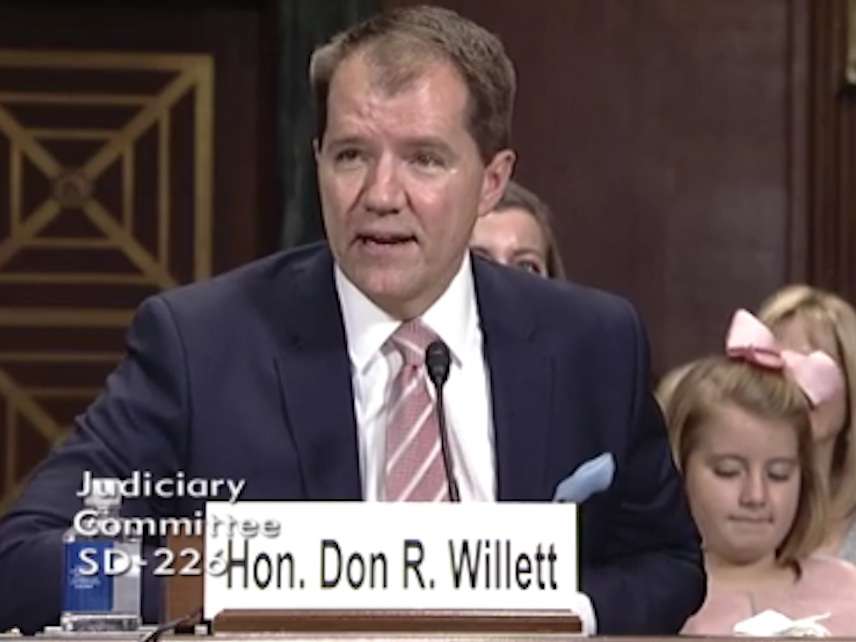Judge Willett and Justice Sotomayor Attack Qualified Immunity for Cops
A libertarian-leaning federal judge and a liberal Supreme Court justice both make the case against qualified immunity.

What do liberal Supreme Court Justice Sonia Sotomayor and libertarian-leaning 5th Circuit Judge Don Willett have in common? They both despise the modern SCOTUS doctrine of qualified immunity, which shields police officers and other government officials from being sued over violations of constitutional rights.
In Harlow v. Fitzgerald (1982), the U.S. Supreme Court held that government officials are entitled to immunity from civil suits so long as the conduct that they're being sued over "does not violate clearly established statutory or constitutional rights."
What that means in practice, Judge Willett observed in a 2018 opinion, is that "public officials [can] duck consequences for bad behavior—no matter how palpably unreasonable—as long as they were the first to behave badly." Justice Sotomayor has offered a similar view. The Supreme Court's "one-sided approach to qualified immunity," she wrote in a 2018 case, "transforms the doctrine into an absolute shield for law enforcement, gutting the deterrent effect of the Fourth Amendment."
Case in point: In its 2017 decision in Latits v. Phillips, the U.S. Court of Appeals for the 6th Circuit concluded that a Michigan police officer violated the Fourth Amendment when he shot and killed a fleeing suspect. But the court then proceeded to award qualified immunity to the officer anyway for his unconstitutional use of deadly force. "Although we now hold that [Officer Lowell] Phillips's conduct fell outside the bounds of the Fourth Amendment," the 6th Circuit said, "controlling authority at the time of the events had not clearly established the rights we identify today."
"The majority spends the bulk of its opinion explaining how Officer Phillips' use of deadly force was objectively unreasonable," responded 6th Circuit Judge Eric Clay in dissent. "In the final stretch, however, the majority abruptly shifts gears to hold that [the plaintiff's] constitutional rights were not clearly established…. In so holding, the majority has created a nearly impossible barrier for plaintiffs seeking to vindicate their rights against government officials."
Something has gone seriously wrong in our criminal justice system when the courts are running this kind of interference on behalf of blatantly unconstitutional police conduct. Here's hoping that the legal position championed by Sotomayor, Willett, and Clay eventually triumphs over today's destructive and preposterous qualified immunity regime.
